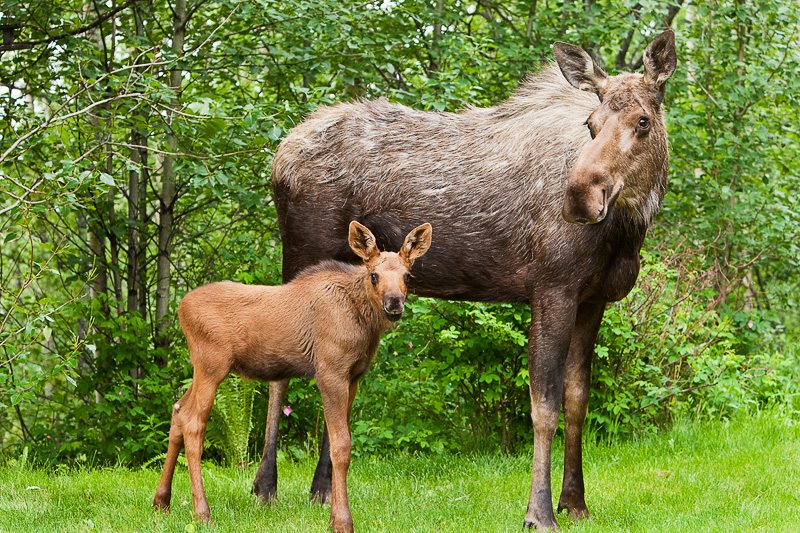BC’s Ministry of Forests, Lands and Resource Operations says it plans to strengthen current moose management strategies as part of a move to modernize provincial wildlife management.
Dave Fyfe is a guide outfitter and a member of the Wildlife Stewardship Council. He says the changes are long overdue.
“There’s really been a failure of successive governments to acknowledge many of the concerns that are being voiced. And it’s not just guide outfitters. First Nations – the declining moose populations and other wildlife populations have clearly impacted their opportunities for sustenance hunting,” says Fyfe. “The Wildlife Stewardship Council is extremely supportive of this initiative. It’s been very apparent to all that there’s been a steady decline in moose populations and that decline has had broad cultural and social implications throughout the province.”
Fyfe says the the Ministry’s acknowledgement of the moose population decline is a step in the right direction.
“This is an important 1st step, this moose recovery strategy, that we’re hoping is a real, serious commitment to doing what’s right for wildlife.”
According to the BC Wildlife Federation, moose are the most demanded species by resident hunters with nearly 70,000 applying for just 12,000 moose tags each year. The Federation says the province’s moose population has been in decline for the past three decades.
Rudy Day is a resident of northern BC and a guide with the Shesley River Outfitters. He says BC moose are facing tremendous pressure from hunting, habitat degradation and predator imbalances.
Day says the province needs to take big steps to protect moose – up to and including wolf control measures.
“It’s a tough issue when you mention wolf control but we need it up here and it would strengthen our moose big time.”
Fyfe echoes Day’s assertion that predator control may be required in order to preserve the province’s moose population.
“It’s difficult for people who live in cities to understand the predator prey relationships that our out there. But the people that live on the land can and will tell you that in many cases there are imbalances and moose, for example, just aren’t getting an opportunity to survive.”
Both Day and Fyfe say guides, local First nations and northern communities have been trying to call attention to the declining moose population for years. Day says the province’s announcement about better moose management comes none too soon.
“We’re looking for changes here right away, hopefully this year, so that our moose population won’t drop anymore because of the over hunting and predation of wolves.”
Day says moose are critical to life in the north, especially to First Nations.
“It’s the way of our life up here and moose is our main source of food up here. If we don’t have that, we’re basically pretty well gone. It’s very important to us.”
The province says it plans to consult with First Nations and key wildlife stakeholders to determine the best way to preserve moose and other at-risk species.
Something going on in the Prince George area you think people should know about?
Send us a news tip by emailing [email protected].






